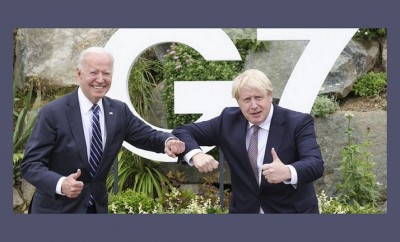
Britain Must Balance a Transatlantic Heart With a European Head
Returning from an EU-rooted foreign and economic policy to one which is more international in outlook will be difficult, take time, and be more costly than the new UK government currently envisages.
The convincing general election win for the Conservative Party and Boris Johnson opens a new chapter in British history. On 31 January 2020, Britain will withdraw from the EU and return to its historical position as a separate European power.
Recognising the strategic significance of this change, the Queen’s speech opening the new parliament stated that ‘the government will undertake the deepest review of Britain’s security, defence, and foreign policy since the end of the Cold War’. But in what context?
Prime Minister Boris Johnson and other Brexit supporters have yearned for Britain to return to its exceptional trajectory. In their view, Britain can once again become a trading nation – more global in outlook and ambition than its European neighbours, freed from the shackles of an ageing and fractured European continent and its deadening regulatory hand.
This imagery makes good copy. But the 21st century does not offer Britain the same opportunities as did the 18th, 19th or early 20th centuries. This is a different world, and Britain’s position in it needs to be crafted with a sharp eye to what is possible.
Συνέχεια ανάγνωσης εδώ
Πηγή: chathamhouse.org




